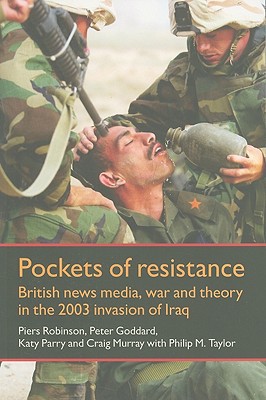
Pockets of resistance : British news media, war and theory in the 2003 invasion of Iraq. PDF
256 Pages·2010·2.458 MB·other
Most books are stored in the elastic cloud where traffic is expensive. For this reason, we have a limit on daily download.
Preview Pockets of resistance : British news media, war and theory in the 2003 invasion of Iraq.
Description:
For scholars of media and war, the 2003 invasion of Iraq is a compelling case to study. As part of President Bush’s "war on terror," the invasion was the most controversial British foreign policy decision since Suez, and its ramifications and aftermath have rarely been far from the news. In the many political and public debates regarding this conflict, arguments over the role of the media have been omnipresent. For some, media coverage was biased against the war, for others it became a cheerleader for the invasion. Where does the truth lie? Drawing upon a uniquely-detailed and rich content and framing analysis of television and press coverage, and on interviews with some of the journalists involved, Pockets of Resistance provides an authoritative assessment of how British news media reported the 2003 Iraq invasion and also of the theoretical implications of this case for our understanding of wartime media-state relations. Pockets of Resistance examines the successes and failures of British television news as it sought to attain independence under the difficult circumstances of war, and describes and explains the emergence of some surprisingly vociferous anti-war voices within a diverse national press. In debunking political claims of anti-war media bias, as well as portraying media-state relations in a more nuanced fashion than in most existing accounts in the field, this study offers a theoretically-grounded starting point for a more nuanced understanding of how and why media report war in the way that they do. Essential reading for scholars, advanced students, journalists and policy makers.
See more
The list of books you might like
Most books are stored in the elastic cloud where traffic is expensive. For this reason, we have a limit on daily download.
